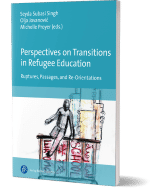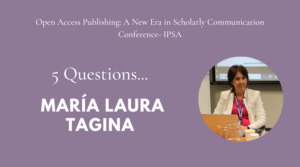Perspectives on Transitions in Refugee Education
edited by Seyda Subasi Singh, Olja Jovanović and Michelle Proyer
About the book
Refugees face transitions in their lives: at an individual, a social and a cultural level. This book covers various aspects of these transitions and their intersections with educational experiences. Studies from different country contexts show the complex relationships between individual, culture, society and institutions. Examining these relationships and experiences during transitional processes aims to contribute to a deeper understanding of the different types of transitions in the context of refugee education, which may lead to an improvement of support structures in the future.
Reading sample from pp. 209-212
Syrian refugee families in Iceland: Aspects of transitions in education and society
Hanna Ragnarsdóttir and Susan Rafik Hama
1 Introduction
Around 800 refugees have resettled in Iceland in the past decades, from 1956 to 2021 (Government of Iceland, n.d.). So-called quota refugees are invited to Iceland by the government and settle in various municipalities in the country. Before the refugees arrive, decisions regarding from which countries refugees arrive are made in cooperation with the UN Refugee Agency (United Nations High Commissioner for Refugees, UNHCR).
In 2016 a group of fifty-six Syrian quota refugees arrived in Iceland from Lebanon and settled in three municipalities, altogether ten families, comprising twenty adults and thirty-six children (Icelandic Red Cross, 2016). A study (Ragnarsdóttir & Hama, 2018) was conducted in 2016-2017 which aimed to understand the first experiences of these adults and their children in their school settings, and opportunities and challenges which they faced in the schools and society.
In this paper we revisit four of the ten families in the study to explore various aspects of transitions, such as role transitions, educational transitions and sociopolitical transitions and the intersections of these during the five years since their arrival in Iceland. Our research questions include:
- What transitions have the refugee families experienced in Iceland during the first five years?
- What are the parents’ educational expectations for their children?
- How do the families maintain their religion, culture and heritage language?
- What opportunities and challenges have the parents and children experienced in their educational process?
2 Background and context
The guidelines for the reception of quota refugees, i.e. refugees invited to resettle in Iceland (Stjórnarráð Íslands, 2013) stipulate that services are provided for one year after the arrival of the refugees. The role of the refugee committee of the Icelandic government is to decide in cooperation with the UNHCR from which country or countries refugees should be invited to resettle in Iceland each year. The committee then proposes to the government of Iceland a general policy and organization of the reception of refugee groups from a certain country or countries each year. Based on the government’s decision, the Icelandic Red Cross cooperates with the government in finding three to five support families for each refugee family. A contract is made with certain municipalities for receiving and providing services for the refugees. Certain criteria are considered and have to be fulfilled by the municipalities that are chosen, including the possibilities for education, the availability of social services, health services, jobs, housing and other matters considered to be of importance in each case. When the refugees arrive, they are granted health services, courses in Icelandic, courses on Icelandic society, first (L1) language teaching where possible, leisure activities, services of interpreters, assistance in finding jobs and other necessary services. Generally, the aim of the reception and support is to enable as well as possible the integration of the refugees into Icelandic society.
3 Theoretical framework: Aspects of transitions and integration of refugees
Various approaches to education and integration to a new society highlight the position of minority groups in schools and societies from a critical perspective and analyze what factors in educational and societal structures cause and maintain unequal status (May & Sleeter, 2010). These approaches are applied in this study to critically address the societal and educational experiences of the parents and their children and suggest improvements. Nieto (2010) claims that educational systems need to critically address inequalities and ensure equality, social justice, empowerment, voice, and dialogue for
their individual students and teachers.
Writings on the wellbeing of refugees are also consulted in this study (Rousseau, Measham, & Nadeau, 2012). Findings of research with families with refugee background have indicated that many of these families have experienced difficult situations that can affect their daily life and education. These include challenges in resettling in a new country such as differences in values, norms, and languages (Jensdóttir, 2016) and health issues.
Emphasizing the strengths and resilience of children and youth with refugee background is also important. Alsayed & Wildes (2018), reporting on their study of difficulties and strengths of Syrian children with refugee background in Turkey, emphasize that schools should address both the difficulties and the strengths of refugee children. They note that large numbers of refugee and war-affected children, exhibit remarkable resilience and actively adapt to, cope with, and navigate complex situations of adversity. In their research, the children enjoy play, want to discuss their situation and hold opinions about
their needs.
Refugee families face many challenges when resettling in a new country, including adjusting to new social and geographical conditions and new roles. According to Richman (1998), this can lead to a loss of status, role, and respect, and may result in various ailments. While many refugees are well educated and have skills and professions that could contribute to their community and society, research in Iceland has indicated that their qualifications are rarely recognized (Alþjóðamálastofnun Háskóla Íslands, 2017). This can cause difficulties and depression for many refugees. Additionally, according to Richman (1998), refugees often lack social networks and therefore, many women and mothers of young children may experience isolation when they resettle in a new country.
Lloyd, Pilerot and Hultgren’s study (2017) focused on the information experiences and practices of transition and marginality in the context of resettlement and integration of refugees.
The authors analysed Syrian refugees’ experiences of re-establishment in Sweden and focus on their challenges as they deal with the disruption of knowledge and consequent changes in their previous routine information and media practices. They maintain that transition is a disruptive process which can result in the loss of various competences related to information that connect people to their social, economic and everyday environments. The authors report on the main themes of place (loss and reconnection), being safe, gaining entry, and reassembling fractured landscapes.
Strang, Baillot and Mignard’s (2018) research on transition examined the particular case of transition from the uncertain position of an asylum seeker to a refugee with statutory rights. They explored the interaction of structure and agency in refugees’ lived experience of integration in super-diversity. The findings indicated that refugees’ desire to be independent was thwarted by inaccessible systems that were insensitive to language and cultural barriers. Furthermore, poverty and disruption of social networks undermined effective integration.
Findings of a study by McCarthy et al (2020) on the experiences of two refugees from Iran and Afghanistan who resettled in the U.S.A. indicated that there were contextual barriers to occupation, both systemic and socio-cultural that impacted their ability to engage in meaningful occupation leading to a lack of belonging. The findings reveal that the refugees adapted to these barriers by adapting their occupations.
Research studies on transitions in education have revealed a number of challenges. The findings of Baker and Irwin’s (2019) longitudinal, ethnographic study on the educational trajectories of adult refugees in Australia indicated that although journeys into and through higher education can be challenging for all learners, students from refugee backgrounds face particular difficulties due to their culturally and linguistically diverse backgrounds, and pre-settlement experiences of instability, insecurity, likely trauma and interrupted education.
McWilliams and Bonet’s (2016) research study focused on how the pre-migratory experiences of 90 Bhutanese, Burmese, and Iraqi refugee youth shape their aspirations, needs and capabilities as they transition to postsecondary education and work in the American urban context. The findings indicate that while coping with interrupted schooling, residual trauma, and the pressures of poverty, the youth continue to experience precarity in their lives which began in their flight contexts and extending into their post-resettlement social worlds.
***
Would you like to read more?
This contribution and all others in the book are available in Open Access!
You can purchase the book as a print book or download it in our shop:
Perspectives on Transitions in Refugee Education. Ruptures, Passages, and Re-Orientations
edited by Seyda Subasi Singh, Olja Jovanović and Michelle Proyer


